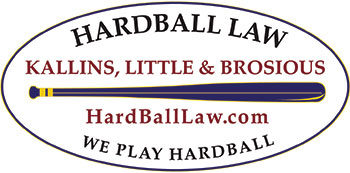When creating an estate plan, one of the decisions you will need to make is whether to set up a trust, or if a will would be sufficient to meet your needs. Making this decision means understanding how both these legal documents work, and when one is preferable to meet your needs. First, let us look at what each legal document does and cannot do.
Drafting a Last Will and Testament
When you draft this legal document, you will be able to ensure your personal property and assets are distributed in accordance with your wishes. You can also name a guardian for any children who are still minors using your will. The process of drafting a will is simple. You need to indicate it is your desire to establish the will, name your executor, list your assets, and indicate who the beneficiary of the asset is upon your death, and if appropriate, you name a guardian for your children. Once you have signed the will and had it properly executed per Florida laws, you need not do anything else unless you wish to make changes to your executor, or you wish to change beneficiaries.
It is important to remember, if you use a will, your personal property will become a matter of public record upon your death. Once a will is presented to the court, anyone who elects to do so may be able to access a complete listing of your assets as well as the names of the person you have designated as executor of your estate and your beneficiaries. Distribution of your assets is then handled by your executor through the Florida probate process.
Drafting a Trust Agreement
Trust documents, when properly executed, are merely instruments which create an entity known as the trust. For example, you may create a trust called The Y Family Trust. Once the trust is created, you would then transfer your assets into the trust. During your lifetime, you would be designated as the trustee of the trust, allowing you to use your assets for your own benefit.
When drafting a trust agreement, you would name a successor trustee. Upon your death or disability, the successor trustee would then take control of the trust and the assets would be distributed in accordance with the terms of the trust. Assets which are held by the trust are not subject to Florida’s probate process, and there would be no public disclosure of those assets, or your beneficiaries.
If you are financially responsible for a loved one who has special needs, you may also wish to consider a trust to ensure their needs are met after your death.
Both Have Benefits and Drawbacks
When you have a simple estate, for example, most of your assets are jointly held with a spouse, a will may be your best option. However, the more complicated and extensive your estate, the more beneficial a trust could be.
Keep in mind, while a will does not protect your heirs in any manner from creditor claims, assets which are held in trust are shielded from creditors. Additionally, because your assets held in trust do not have to go through the probate process, the distribution of those assets to your beneficiaries would likely be faster.
When drafting a trust, you may still need a will if you have minor children. You should discuss this with a trusted estate planning attorney. An estate planning attorney can help you determine if a will or a trust is best for your specific needs.

